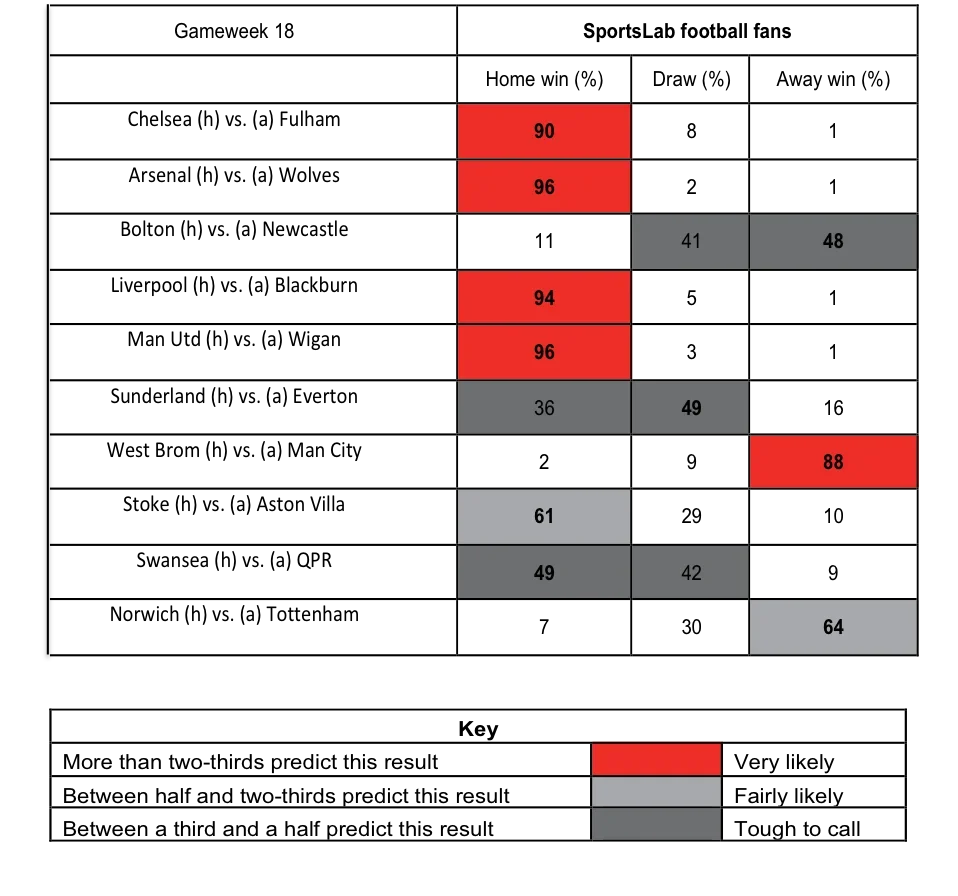Six home wins, a single draw and three away wins are SportsLab football fans’ predictions for the post-Christmas Premier League matches. Five of those games look fairly one-sided: more than nine out of ten expect home wins for Chelsea (who face Fulham), Arsenal (who host Wolves), Liverpool (who take on Blackburn) and Manchester United (who play Wigan), while 88% expect Manchester City to return from their trip to West Brom with three points. A majority also expect Stoke to triumph over Aston Villa and Tottenham to beat Norwich away from home.
Three games, however, are tough to call. A Welsh win is the option picked by almost half of SportsLab participants for QPR’s match at Swansea, but more than four out of ten expect the points to be shared. Newcastle are marginally tipped to beat Bolton at the Reebok, but again, over 40% predict a draw. Finally, the lone draw forecast is Everton’s visit to Sunderland. However, over a third of SportsLab fans expect Martin O’Neill’s side to beat the Toffees.

The results and predictions of the midweek games are shown below. Correct calls from SportsLab fans included Norwich’s draw with Wolves, Manchester United and Manchester City’s comfortable wins over Fulham and Stoke respectively, Arsenal’s victory at Aston Villa, and Everton’s win over Swansea. Chief among the shock results were Wigan’s draw with Liverpool (more than three quarters had forecast a win for the Merseyside team) and West Brom’s thrilling victory against Newcastle, predicted by only three per cent of fans.

Labs Method statement
YouGovLabs research is anecdotal, with polls being open to all panellists who wish to take part. In contrast to YouGov’s Public Opinion polling, YouGovLabs seeks to understand the attitudes of specific subsets of people: sports fans tell us how they feel about sports and music fans tell us how they feel about music, for example. YouGovLabs results are unweighted, and figures reported do not reflect the attitudes of the population as a whole.







